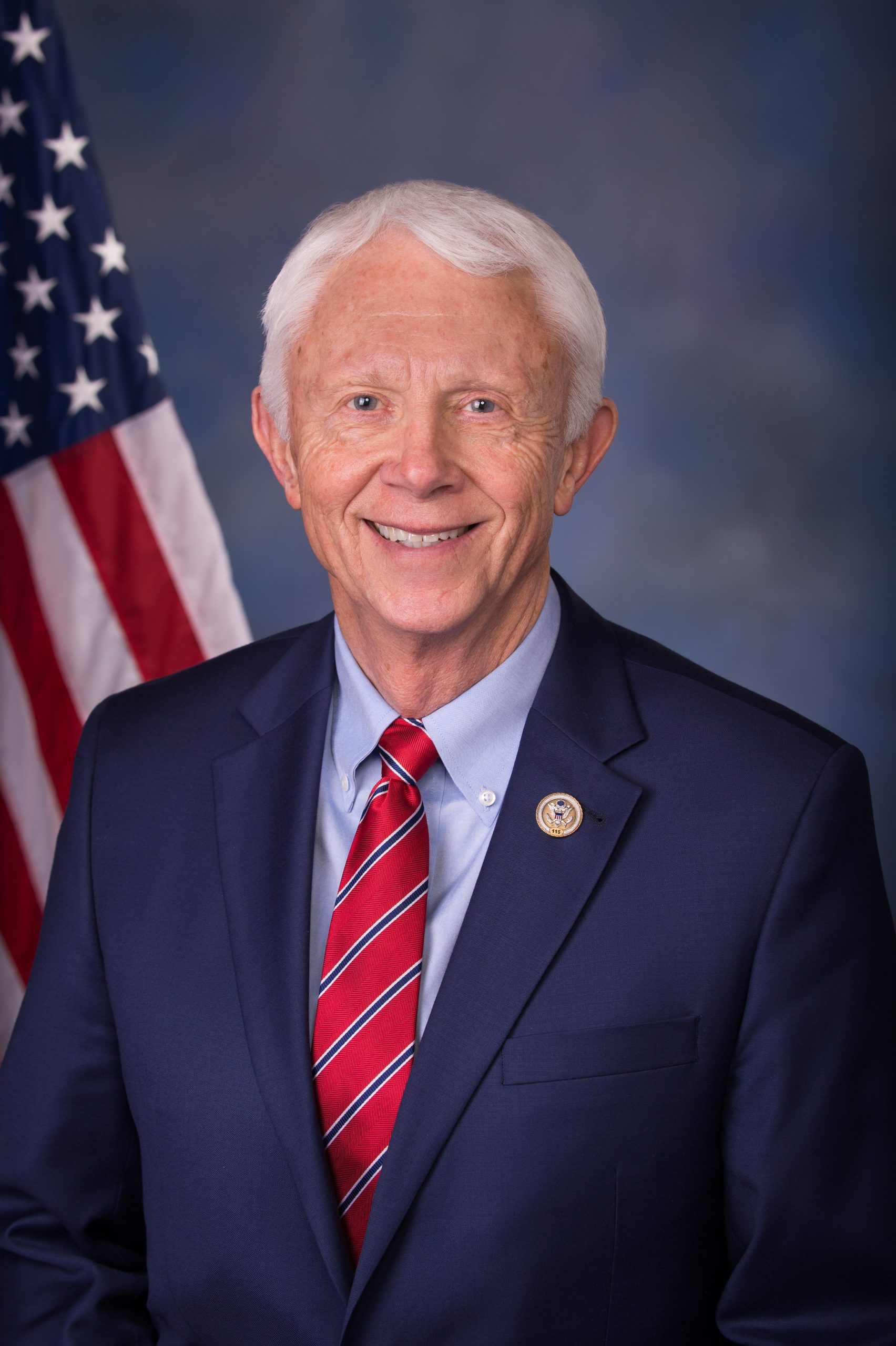TOLEDO, OH – Michigan Congressman Jack Bergman (R) has been named 2018 Great Lakes Legislator of the Year by the largest labor/management coalition representing shipping on America’s Fourth Sea Coast. The award is presented annually by Great Lakes Maritime Task Force (GLMTF) to a legislator who has helped advance waterborne commerce on the Great Lakes and St. Lawrence Seaway and will be presented on September 18 at Great Lakes Maritime Academy in Traverse City, Michigan.
“Although this is just his first term, Rep. Bergman has quickly become recognized as a leader on Great Lakes and Seaway issues,” said Jim Weakley, President of GLMTF in 2018. “This reflects that his district fronts on three of the five Great Lakes: Superior, Michigan and Huron.”
Weakley, who is also President of the Lake Carriers’ Association, said GLTMF is especially grateful that Rep. Bergman spoke directly to President Trump about the need for a second Poe-sized lock at Sault Ste. Marie, Michigan. “Within hours of Congressman Bergman talking to the President, our nation’s leader publicly declared his support for fixing the Soo Locks. That support, coupled with the new benefit/cost ratio of 2.42, puts the project in the best spot it’s been in years.”
Congressman Bergman’s commitment to adequate U.S. Coast Guard icebreaking resources is another reason for his selection. “The locks at Sault Ste. Marie, Michigan, open on March 25 and close on January 15,” said John D. Baker, 1st Vice President of GLMTF, and President Emeritus of the International Longshoremen Association’s Great Lakes District Council. “But if heavy ice covers the Lakes, the resumption of the iron ore trade and overseas exports of grain from the Lakes largest grain-shipping ports will be delayed. Rep. Bergman is fully supportive of building another heavy icebreaker to help the MACKINAW and other icebreakers keep commerce moving under even the most trying conditions.”
Richard Hammer, 2nd Vice President of GLMTF and Assistant General Manager of Donjon Shipbuilding and Repair, saluted Rep. Bergman’s dedication to adequate dredging of Great Lakes ports and waterways. “U.S.-flag lakers are the most efficient self-unloaders in the world, but they lose as much as 270 tons of cargo for each inch of draft they forfeit when ports and waterways are not adequately dredged. The problem was particularly acute in 2013, and while water levels are currently high, they will go down again. The U.S. Army Corps of Engineers needs to dredge more than 13 million cubic yards of sediment from the Great Lakes Navigation System before full loads will become the norm.”
John E. Clemons, 3rd Vice President of GLMTF and National Vice President Great Lakes for American Maritime Officers, stressed Congressman Bergman’s support for a strong U.S.-flag merchant marine played another role in his selection. “Rep. Bergman knows that vessels crewed with Americans, built by Americans, and owned by Americans keep America safe and serve the economy well. These are the tenants of the Jones Act and as that law nears its 100th birthday, America’s domestic merchant marine has never been stronger.”
With his selection as Great Lakes Legislator of the Year, Rep. Bergman becomes the tenth Michigan legislator to receive the award since its inception in 1998. Previous recipients are Senators Debbie Stabenow, Carl Levin and Spencer Abraham, and Representatives Bill Huizenga, Candice Miller, Dave Camp, Vernon Ehlers, Bart Stupak, and Dave Bonior.
Founded in 1992, Great Lakes Maritime Task Force promotes domestic and international shipping on the Great Lakes. With 78 members, it is the largest U.S. coalition to ever speak for the Great Lakes shipping community and draws its membership from both labor and management representing U.S.-flag vessel operators, shipboard and longshore unions, port authorities, cargo shippers, terminal operators, shipyards and other Great Lakes interests. Its goals include ensuring Lakes dredging is adequately funded, construction of a second Poe-sized lock at Sault Ste. Marie, Michigan, bolstering the Coast Guard’s icebreaking resources; protecting the Jones Act and other U.S. maritime cabotage laws and regulations; maximizing the Lakes overseas trade via the St. Lawrence Seaway; opposing exports and/or increased diversions of Great Lakes water; and expanding short sea shipping on the Lakes.
